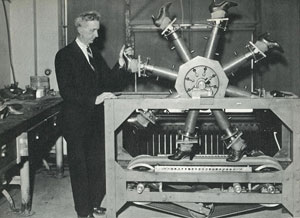
The National Institute of Standards and Technology (NIST) — the federal agency that “works with industry to develop and apply technology, measurements and standards” — has recently begun to fund standards-focused educational initiatives, seeking to establish curricula on the social, political and technological features of standards for secondary and post-secondary students.
The agency’s aim is better to prepare those who will one day work with standards in technical, legal or regulatory capacities. Drexel’s 2015 summer institute, “Standards in Society,” will offer 13 graduate students from Drexel and nine other universities an immersive, two-week exposure to social scientific and policy approaches, exploring the disciplinary, legal and ethical conditions under which standards are produced and deployed. Drawing on methodologies from history, science and technology studies, policy, anthropology and other disciplines, students will survey existing understandings and formulate newly critical questions about the social origins and impacts of standards.
Just as NIST itself now undertakes research on standards that inform manufacturing, communications, biomedical, agricultural and other sectors, addressing both national and global needs, our summer institute (a residential experience held on Drexel’s University City campus, free of charge to participants) covers a wide range of commercial and governmental cases. Graduate students in STEM and non-STEM fields currently have little opportunity to study standards, specifications and codes as pervasive tools of industry and government. For this workshop, students and instructors will work together in seminars studying case materials; meet with guest speakers from multiple sectors; and participate in fieldtrips to NIST’s own museum and laboratories in Gaithersburg, Maryland, and to the headquarters of the ASTM International in West Conshohocken, Pennsylvania. Philadelphia’s extensive array of history of science archives and museums will provide further resources. The two-week event will culminate in students’ production of written and visual materials, interactive exercises and other means of disseminating our findings.